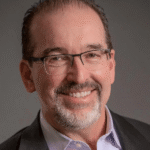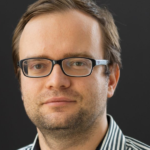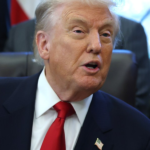Over the course of the three-day summit, attendees and Goldman leaders talked all things AI—from the most lucrative investments, to the tech’s impact on the environment, and its potential to innovate industries. But alongside discussion of the hottest AI startups and new breakthroughs, Goldman Sachs had to set the record straight on one question. Despite OpenAI’s CEO Sam Altman and Meta’s Mark Zuckerberg drawing comparisons to the dot-com boom, the $238 billion bank said that we’re not in an AI bubble.
“We did have a conversation about markets and whether or not we think we’re in a bubble,” Brittany Boals Moeller, region head of Goldman Sachs’ San Francisco PWM division, tells Fortune. “We do not think we’re in a bubble, and we pay very close attention to that.”
“Will there be some winners and losers from AI? Absolutely. There will definitely be some places where valuations are overblown, and time will tell where those spaces are. So it’s smart for clients to be diligent about how they’re investing in AI.”
At the Helm attendees had a lot to say about AI. The group, mainly millennials and young Gen Xers, grew up in the internet era and recognize how technology can switch up the status quo. Boals Moeller says the recent AI breakthrough is no different. Clients are clued in on the technology, from how to effectively prompt chatbots, to what companies are making waves.
“This is a group of early adopters, high-energy tech-enabled people, and so the discussion around AI in general was very positive,” she explains. “I’m sure that there are some who have concerns about directionally where it goes. But there were a lot of people who were very excited about the innovation.”
“Energy did come up in the context of AI quite a bit as an interesting investment opportunity for clients, and also to balance that with the social issues about energy [as] a finite resource,” Boals Moeller continues, adding that it’s a way to access AI’s value creation from a “tangential” place. “How do we really think about that responsibly relative to the energy needs?”
“People were excited to be closer to [the technology],” Boals Moeller says.









